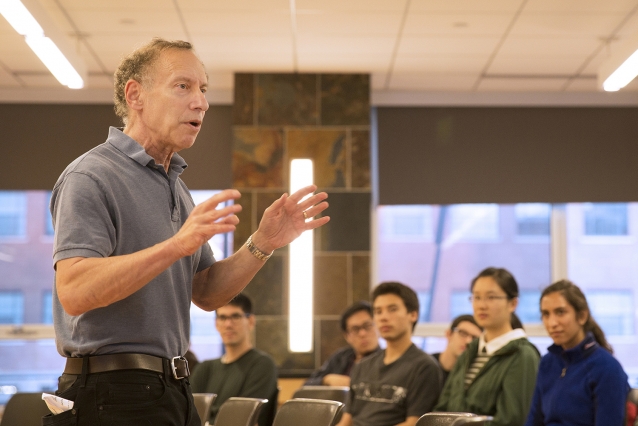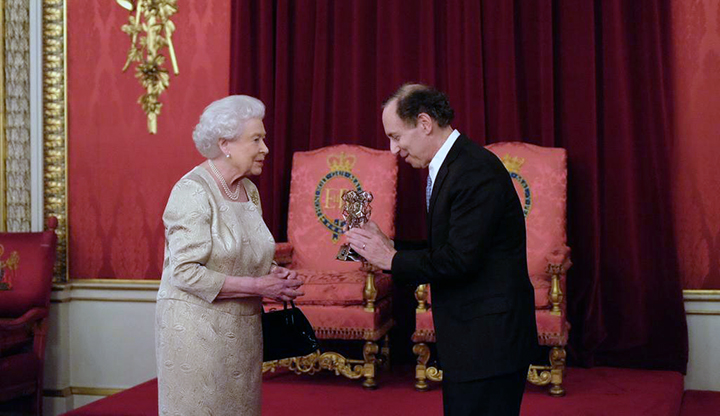 As an institute professor and principal investigator of a research lab at MIT, my main role is to dream up ideas and make sure there is funding for them.
As an institute professor and principal investigator of a research lab at MIT, my main role is to dream up ideas and make sure there is funding for them.
I get ideas from unusual places. Once, I was watching a television show on how they make tiny microchips in the computer industry. I thought that would be a great way to deliver drugs in the human body, and we developed that.
Another time, while on an exercise bike, I was reading a magazine about how dents might be fixed in cars of the future. They were explaining about metals that have a shape memory effect, and how you could just heat up the car and the dent would go back into place. And I thought, gee, what if we could make biomaterials like that, and so we did.
What Does My Day Look Like?
On a typical day, I might have twenty different meetings giving advice to students, to companies, and even to the president of the United States. I might be in class at MIT, giving a lecture, or on an airplane flying somewhere to give a lecture or an interview.
I also engage with politicians and sit on many boards, like the FDA’s Science board. I even advise other governments on science; I’ve met with the Queen of England and the King of Spain. I’ve worked with Julie Andrews to help get funding for vocal cord research to make new vocal cords. We do a lot of work with the Gates Foundation to make new medicines for the developing world.
The Best Part of My Job
 I really enjoy interacting with students and seeing them grow to have a better idea of the path they want to go down in life.
I really enjoy interacting with students and seeing them grow to have a better idea of the path they want to go down in life.
In class there is always an answer; however, with research, there may not always be an answer. You certainly don’t know from the start what you will find or discover.
In grammar school, high school, and college, students spend their entire time trying to give answers to questions that other people ask, and that’s how they're judged. To me, that’s not necessarily how you are judged in life.
The way you are judged in life is not necessarily how good your answers are, although that is important, but by how good your questions are. One of my roles is to help students to go from someone who can give good answers to someone who can also ask good questions.
My Advice to Students:
It’s not critical to know what you want to do right away. It’s good to do well in school and learn the fundamentals and get exposure to different things.
Talk to people about what they’ve enjoyed and not enjoyed, maybe even get a summer job in something you’re interested in. I’ve seen too many people feel overpressured to know what they want to do when they’re young, but I think you don’t have to. It’s really important to take your time and find something you really love.








